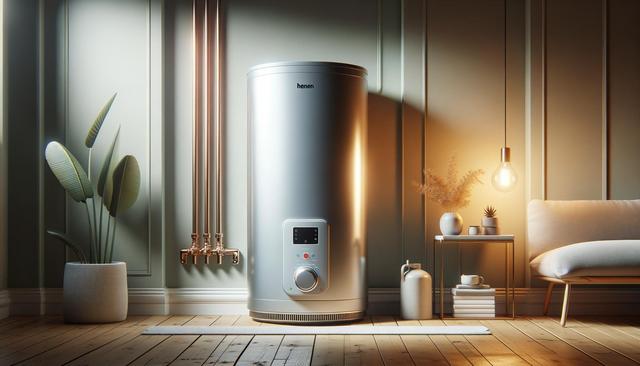Understanding the Types of Water Heaters
Choosing the right water heater begins with understanding the different types available. Each type has its unique features, benefits, and installation considerations. The most common types include:
- Storage Tank Water Heaters: These are traditional models with an insulated tank where water is heated and stored until needed.
- Tankless (On-Demand) Water Heaters: These provide hot water only as it is needed, offering energy savings by eliminating standby heat loss.
- Heat Pump Water Heaters: Also known as hybrid models, they use electricity to move heat from the air or ground to heat water.
- Solar Water Heaters: These use energy from the sun and are most effective in sunny climates.
Each option comes with pros and cons depending on your household size, usage habits, and budget. Evaluating your lifestyle needs can help determine which system will provide long-term value and reliability.
Energy Efficiency and Cost Considerations
Energy efficiency is a top priority when considering a new water heater. An efficient system not only reduces environmental impact but also lowers energy bills over time. Look for units with a high energy factor (EF) or uniform energy factor (UEF), depending on the model. Tankless and heat pump models generally offer higher efficiency ratings than traditional tank systems.
In addition to the purchase price, consider:
- Installation Costs: Some systems, like tankless models, may require upgraded electrical or plumbing work.
- Maintenance Requirements: Regular flushing for tank models or filter changes for tankless versions can prolong lifespan and maintain performance.
- Operating Costs: Heat pump water heaters may have a higher upfront cost but offer significant savings over time.
Investing in an energy-efficient model may also qualify for rebates or tax incentives, further enhancing the overall value of your purchase.
Capacity and Household Needs
A critical factor in selecting a water heater is ensuring it can meet your household’s hot water demands. A unit that’s too small may run out of hot water quickly, while an oversized one might lead to higher energy bills. For storage tank models, the tank size is key—commonly ranging from 30 to 80 gallons. For tankless units, flow rate measured in gallons per minute (GPM) is crucial.
Consider the following when estimating your needs:
- Number of people in the household
- Number of bathrooms and simultaneous water uses
- Appliances that require hot water, such as dishwashers and washing machines
Consulting with a professional can help determine the appropriate capacity and ensure proper sizing, avoiding performance issues later on.
Installation and Maintenance Insights
Proper installation is essential to ensure your water heater runs efficiently and safely. Whether you’re replacing an old unit or installing a new one, hiring a licensed professional is highly recommended. Incorrect installation can lead to leaks, poor performance, or even serious hazards.
Maintenance also plays a vital role in extending the life of your water heater. Routine tasks include:
- Flushing the tank annually to remove sediment buildup
- Inspecting the anode rod every few years to prevent corrosion
- Cleaning or replacing filters in tankless models
- Checking for leaks or signs of wear on valves and connections
Following the manufacturer’s maintenance schedule helps you avoid costly repairs and ensures consistent hot water delivery throughout the year.
Exploring New Technologies and Features
Modern water heaters come equipped with a range of features designed to enhance convenience and performance. Smart water heaters, for example, allow you to monitor and control your system remotely via a mobile app. This can be especially helpful for adjusting settings, monitoring usage, or receiving maintenance alerts.
Additional innovations include:
- Wi-Fi Connectivity: Useful for diagnostics and remote control
- Leak Detection Sensors: Help prevent water damage by shutting off the unit if a leak is detected
- Vacation Mode: Reduces energy use when you’re away
- Energy Usage Tracking: Provides insights into consumption patterns to help you save
These advanced features may add to the initial cost but offer increased peace of mind and long-term efficiency benefits. As technology continues to evolve, water heaters are becoming smarter and more integrated into home energy management systems.
Conclusion: Making the Right Choice
When considering your next water heating system, it’s important to balance efficiency, capacity, cost, and long-term reliability. Whether you opt for a traditional tank, a cutting-edge tankless model, or a hybrid system, the right choice can enhance your daily comfort while keeping energy costs in check. By understanding your household’s needs and evaluating the features of current models, you can invest in a water heater that delivers consistent performance and value for years to come.




Leave a Reply